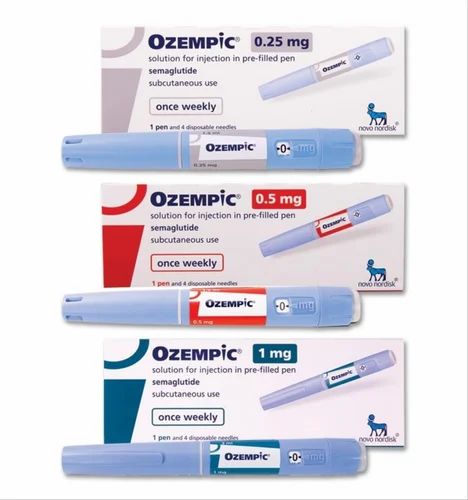Age-Related Hormonal Shifts on Tazzle Performance

Exploring the Impact of Age-Related Hormonal Shifts on Tazzle’s Performance
Introduction
Erectile dysfunction can be particularly challenging for men with disabilities, often linked to age-related hormonal changes. Medzpills Tazzle emerges as a viable solution, but understanding the interplay between age-related hormonal shifts and Tazzle’s effectiveness is crucial. In this blog post, we delve into the ways age-related hormonal changes can influence Tazzle 10 fm [https://medzpills.com/product/tazzle-10-fm/] efficacy and explore alternative treatments for men with disabilities facing erectile dysfunction.
The Prevalence of Erectile Dysfunction in Men with Disabilities
Erectile dysfunction is a common issue among men, and it may be even more prevalent in individuals with disabilities. While there isn’t extensive research solely focused on this demographic, studies suggest they could be more susceptible to this condition. Contributing factors include physical limitations, emotional stress, and side effects from medications.
Physical limitations can hinder sexual activities for men with disabilities, leading to frustration and reduced sexual desire. Emotional stress, encompassing anxiety and depression, can exacerbate erectile dysfunction. Additionally, certain medications used to manage disabilities may have side effects impacting sexual function.
When taken orally, Tazzle 20 fm [https://medzpills.com/product/tazzle-20-fm/] inhibits the enzyme phosphodiesterase type 5, responsible for breaking down cyclic guanosine monophosphate (cGMP). By inhibiting this enzyme, Tazzle allows cGMP levels to rise, resulting in smooth muscle relaxation and increased blood flow to the penis.
How Tazzle Functions in Treating ED
Tazzle is a commonly prescribed medication for managing erectile dysfunction (ED) in men with disabilities. It belongs to a class of drugs known as phosphodiesterase type 5 (PDE5) inhibitors, designed to increase blood flow to the penis during sexual stimulation. This improved blood flow facilitates achieving and maintaining an erection.
Notably, Tazzle does not induce spontaneous erections; sexual stimulation remains essential for its effectiveness. The effects typically manifest within 30 minutes to an hour after ingestion and can last for 4-6 hours.
In summary, Tazzle proves to be an effective treatment option for men with disabilities grappling with erectile dysfunction. It significantly enhances sexual function and elevates overall quality of life. However, consulting a healthcare provider is imperative to determine the appropriate dosage and potential interactions or side effects.
The Influence of Age-Related Hormonal Changes on Tazzle’s Response
Age-related hormonal shifts exert a substantial influence on Tazzle’s effectiveness among men with disabilities. As men age, especially those with disabilities, testosterone levels naturally decline. Testosterone plays a pivotal role in sexual function, affecting the ability to achieve and sustain an erection.
Decreased testosterone levels can diminish Tazzle’s effectiveness in addressing erectile dysfunction. Lower testosterone levels may lead to reduced sexual desire and a weakened response to sexual stimulation, making it more challenging to attain an erection even with medication.
It is vital for men with disabilities and their healthcare providers to acknowledge these age-related hormonal changes and their potential impact on Tazzle’s efficacy. Adjustments in dosage or exploration of additional treatments may become necessary to ensure optimal results. In some cases, healthcare professionals might recommend hormone replacement therapy (HRT) to supplement testosterone levels and enhance Tazzle’s response, though this should be undertaken under professional guidance and supervision.
Understanding the role of age-related hormonal changes enables informed decisions about the most effective treatment options for erectile dysfunction in men with disabilities.
The Role of Testosterone in ED and Tazzle Response
Testosterone, the primary male sex hormone, plays a pivotal role in sexual function, including the ability to achieve and maintain an erection. This holds true for men with disabilities experiencing erectile dysfunction (ED), where comprehending testosterone’s role in Tazzle’s response becomes essential.
Age-related declines in testosterone levels can significantly affect Tazzle’s effectiveness. Lower testosterone levels can result in reduced sexual desire and a diminished response to sexual stimulation, complicating the attainment of an erection even with medication.
Crucially, Tazzle itself does not elevate testosterone levels but instead enhances blood flow to the penis. Therefore, for men with disabilities and age-related hormonal changes, supplementary treatments such as hormone replacement therapy (HRT) may be necessary to bolster testosterone levels and optimize Tazzle’s benefits.
By grasping the role of testosterone in ED and Tazzle’s response, men with disabilities and their healthcare providers can make well-informed decisions regarding the most suitable treatment approaches. Collaboration with a healthcare professional remains pivotal in addressing age-related hormonal changes and maximizing the advantages of Tazzle in managing erectile dysfunction.
Other Factors Impacting Tazzle’s Response in Men with Disabilities
Several other factors can influence Tazzle’s response in men with disabilities grappling with erectile dysfunction. One pivotal factor is the presence of underlying medical conditions. Men with disabilities often contend with multiple health issues like diabetes, heart disease, or high blood pressure, which can contribute to erectile dysfunction. These conditions can affect the body’s receptivity to Tazzle, necessitating additional treatments or dosage adjustments.
Furthermore, an individual’s overall health and lifestyle choices play a role. Unhealthy dietary habits, sedentary lifestyles, smoking, and excessive alcohol consumption can all contribute to erectile dysfunction and potentially hinder Tazzle’s efficacy. Embracing healthier lifestyle changes, such as maintaining a balanced diet, regular exercise, smoking cessation, and moderate alcohol consumption, can bolster overall health and augment Tazzle’s response.
Psychological factors also bear significance in Tazzle’s response. Stress, anxiety, depression, and relationship issues can all contribute to erectile dysfunction. It is vital for men with disabilities to address these psychological factors through therapy, counseling, or support groups, thereby improving mental well-being and enhancing Tazzle’s efficacy.
Additionally, certain medications used to manage disabilities may interact with Tazzle, diminishing its effectiveness. Disclosing all medications to healthcare providers is essential to rule out potential interactions that could impede Tazzle’s efficacy.
In summary, comprehending these additional factors that can impact Tazzle’s response is crucial for men with disabilities and their healthcare providers. By considering these factors and implementing appropriate strategies, men can optimize Tazzle’s effectiveness, thereby enhancing sexual function and overall quality of life.
Tips for Maximizing Tazzle’s Efficacy in Older Men with Disabilities
For older men with disabilities relying on Tazzle to address erectile dysfunction (ED), several tips can enhance its effectiveness. Firstly, maintaining a healthy lifestyle is paramount. Regular exercise, a well-balanced diet, and limited alcohol consumption contribute to overall health, ultimately boosting Tazzle’s response. Quitting smoking is especially recommended, as smoking can impede blood flow and diminish Tazzle’s efficacy.
Secondly, effectively managing underlying medical conditions is critical. Conditions like diabetes, heart disease, and high blood pressure can interfere with Tazzle’s effectiveness. Collaborating closely with healthcare providers to manage these conditions, including potential dosage adjustments or exploring alternative treatments, can optimize Tazzle’s response.
Lastly, addressing psychological factors is essential. Stress, anxiety, depression, and relationship issues can all affect erectile function. Seeking therapy, counseling, or support groups can promote mental well-being and, consequently, enhance Tazzle’s effectiveness.
By adhering to these guidelines, older men with disabilities can maximize Tazzle’s efficacy, leading to improved sexual function and a better quality of life.
The Science behind Tazzle’s Function
Tazzle is a medication commonly used to treat erectile dysfunction (ED) in men with disabilities. But have you ever wondered how it actually works? Well, let’s dive into the science behind Tazzle’s function.
Tazzle belongs to a class of drugs called phosphodiesterase type 5 (PDE5) inhibitors. These drugs work by increasing blood flow to the penis during sexual stimulation. When you take Tazzle orally, it inhibits the enzyme phosphodiesterase type 5, which is responsible for breaking down a chemical called cyclic guanosine monophosphate (cGMP).
By inhibiting this enzyme, Tazzle allows cGMP levels to increase, resulting in smooth muscle relaxation and increased blood flow to the penis. This enhanced blood flow helps you achieve and maintain an erection.
It’s important to note that Tazzle doesn’t cause spontaneous erections; sexual stimulation is still necessary for the medication to be effective. The effects of Tazzle typically start within 30 minutes to an hour after taking it and can last for up to 4-6 hours.
So, in summary, Tazzle works by increasing blood flow to the penis, which helps men with disabilities who experience erectile dysfunction to achieve and maintain an erection during sexual activity.
Strategies for Maximizing Tazzle’s Benefits in Aging Men
As men age, it’s common for them to experience age-related hormonal changes that can affect the response to Tazzle. However, there are strategies that can be implemented to maximize its benefits in aging men with disabilities.
Firstly, maintaining a healthy lifestyle is key. Regular exercise, a balanced diet, and limiting alcohol consumption can all contribute to better overall health, which in turn can enhance the response to Tazzle. Quitting smoking is also highly recommended, as smoking can impair blood flow and decrease the efficacy of the medication.
Secondly, managing any underlying medical conditions is crucial. Conditions like diabetes, heart disease, and high blood pressure can interfere with Tazzle’s effectiveness. Working closely with healthcare providers to manage these conditions and adjusting dosage or exploring alternative treatments can improve the response to Tazzle.
Lastly, addressing psychological factors is essential. Stress, anxiety, depression, and relationship issues can all impact erectile function. Seeking therapy, counseling, or support groups can help improve mental well-being and, in turn, enhance the response to Tazzle.
By implementing these strategies, aging men with disabilities can optimize the effectiveness of Tazzle and experience improved sexual function and overall quality of life. Remember to consult with a healthcare provider for personalized guidance and support throughout the process.



